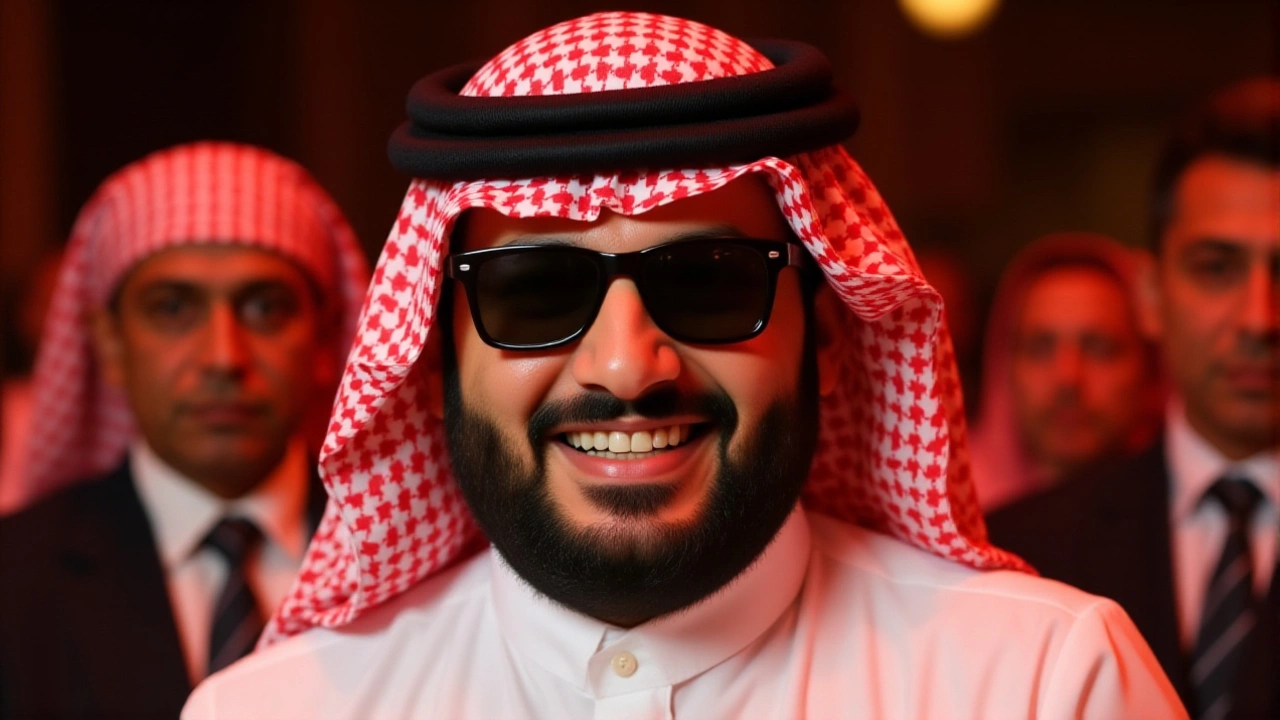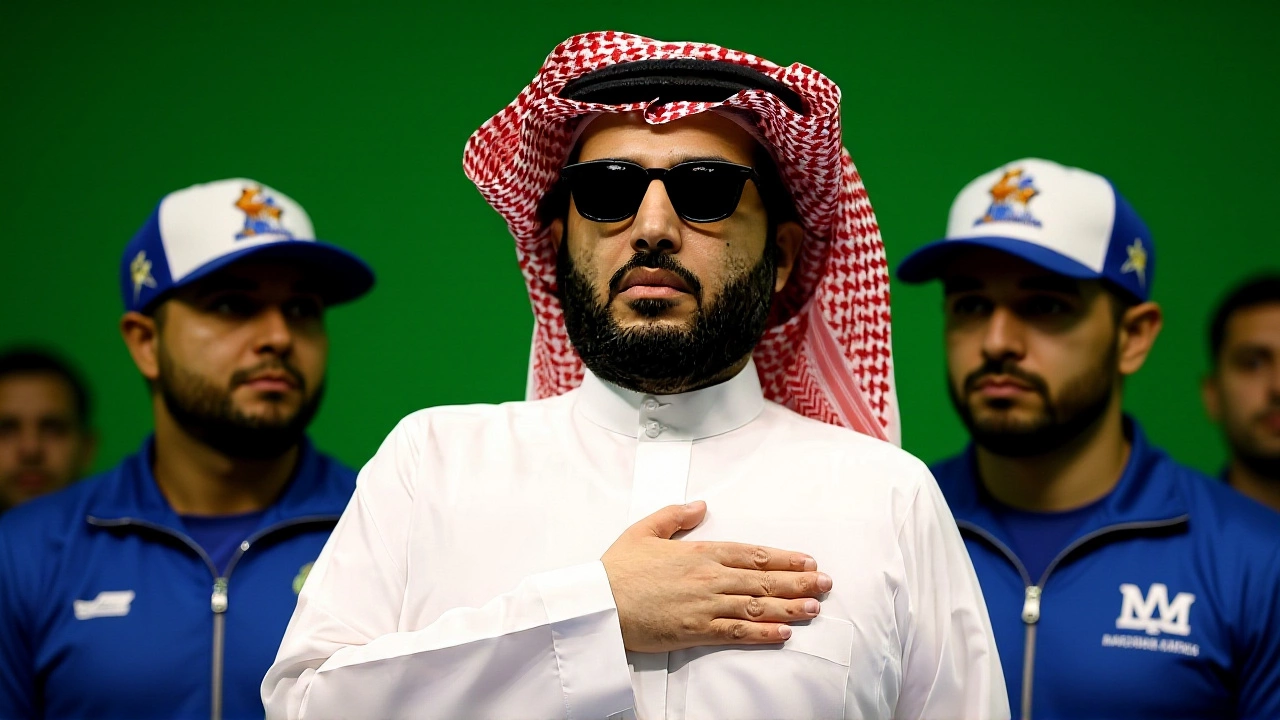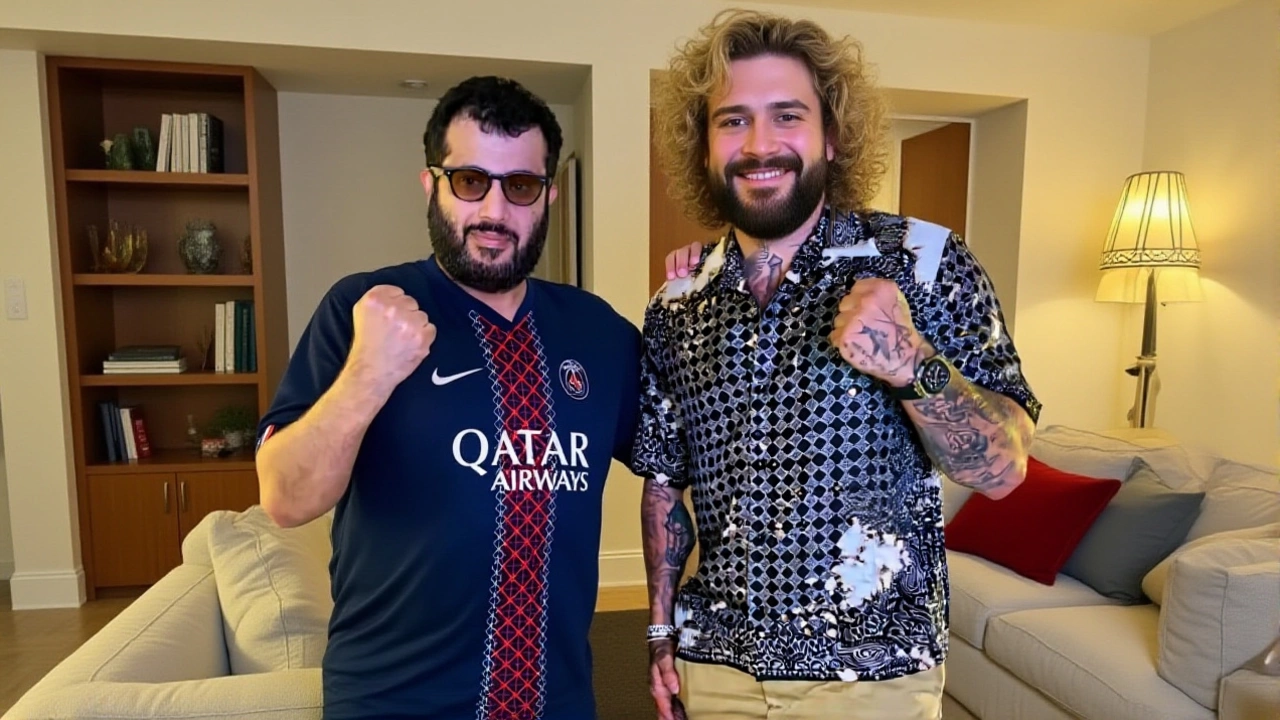On November 15, 2025, Saudi Arabia's General Entertainment Authority chairman Turki bin Abdulmohsen Alalshikh met with American boxer Jake Paul in Riyadh to finalize plans for a blockbuster heavyweight clash against British legend Anthony Joshua. The meeting, confirmed by Nasir Jabbar of SPORTbible, ended months of speculation and signaled a major step toward what could become the most lucrative boxing event in Middle Eastern history.
The Deal That Almost Wasn’t
It’s easy to forget how close this fight came to collapsing. Back in July 2025, Alalshikh told MMA Fighting that Paul had "accepted" the fight — but the deal stalled over purse splits. Joshua’s team wanted an 80-20 split in his favor, a demand Paul’s camp, Most Valuable Promotions, refused to accept. The tension wasn’t just financial. On July 18, World Boxing News quoted Alalshikh saying Joshua would deliver a "brutal KO" to end Paul’s boxing career. That wasn’t just hype — it was a warning shot.
But here’s the twist: Alalshikh didn’t walk away. Instead, he pivoted. And that’s where Netflix comes in.
Netflix Enters the Ring
According to multiple sources, including Sports Illustrated’s FanNation division, Netflix has locked in exclusive global streaming rights for the fight for $40 million. That’s not just a big number — it’s a game-changer. It means the event won’t rely solely on pay-per-view sales. Instead, Netflix’s massive subscriber base becomes the primary revenue engine, reducing pressure on ticket pricing and opening the door for a broader global audience.
And the numbers are staggering. Analyst Matthew Frohlich of BoxStat Analytics predicts $120 million in global PPV revenue alone. That’s more than the combined PPV haul of Joshua’s last three fights. The live gate? 850,000 tickets priced between SAR 300 ($80) and SAR 5,000 ($1,333) for ringside seats. That’s not just a fight — it’s a cultural moment.

Why Riyadh? Why Now?
Saudi Arabia’s push into global sports isn’t new. Since 2016, the General Entertainment Authority — under Alalshikh’s leadership — has spent over $1.2 billion annually to host world-class events. The 2023 Fury vs. Usyk bout at Kingdom Arena drew 15,000 fans and global headlines. This fight is bigger. Much bigger.
Paul, 27, is the ultimate disruptor — a social media titan turned boxer who beat former UFC star Ben Askren and boxing icon Anderson Silva. Joshua, 35, is the establishment: a former unified champion, Olympic gold medalist, and the man who brought boxing back to Wembley. This isn’t just David vs. Goliath — it’s the internet age vs. the traditional boxing elite. And Saudi Arabia is betting everything on the collision.
The Clock Is Ticking
The fight is scheduled for December 19, 2025, at Boulevard Hall in Riyadh. But nothing’s official until the contracts are signed. The Saudi Arabian Boxing Federation in Jeddah must approve the bout, and final paperwork is due by November 22. If it slips, the entire calendar could collapse. Netflix’s December window is tight — they’ve already lined up other events for the 12th and 26th.
Alalshikh’s move is bold. He’s not just promoting a fight — he’s redefining boxing’s future. No longer is it just about London, Las Vegas, or New York. Riyadh is now a top-tier destination. And with Paul’s Netflix deal, the sport’s economic center of gravity may have shifted permanently.

What’s at Stake Beyond the Ring
For Paul, this is his first shot at a legitimate heavyweight legacy. Beat Joshua, and he silences the critics who call him a celebrity boxer. Lose? He’s still a star — but the narrative changes.
For Joshua, it’s about redemption. After losses to Usyk and Oleksandr Usyk, this fight is his last chance to reclaim relevance on the global stage. A win here could mean a rematch with Usyk. A loss? Retirement looms.
And for Alalshikh? This is his masterstroke. He’s turning Saudi Arabia into the new Hollywood of combat sports — not just hosting events, but owning them. Netflix, Amazon, and Apple are watching. If this works, more mega-fights will follow.
Frequently Asked Questions
Why is Netflix investing $40 million in this fight?
Netflix sees Jake Paul as a global draw with 16.7 million YouTube subscribers and a massive Gen Z following. Unlike traditional PPV models, Netflix can leverage its 270+ million subscribers to guarantee viewership, turning the fight into a content event rather than just a sporting match. The $40 million buys exclusive rights, positioning Netflix as the leader in sports entertainment beyond traditional leagues.
Is Jake Paul really ready to fight Anthony Joshua?
Paul’s record (12-1, 7 KOs) includes wins over non-champions like Ben Askren and Anderson Silva, but Joshua is a former unified heavyweight champion with 23 career KOs and elite technical skill. While Paul has improved dramatically since 2020, Joshua’s experience, power, and ring IQ make this his toughest test yet. Experts say Paul’s speed and movement could trouble Joshua early — but if the fight goes past round six, Joshua’s stamina and precision may decide it.
Why did the fight stall in July 2025?
The primary sticking point was the purse split: Joshua’s team demanded an 80-20 split in his favor, citing his legacy and global name recognition. Paul’s camp, Most Valuable Promotions, refused, arguing his social media reach and Netflix deal generated equal value. The impasse lasted six weeks until Alalshikh brokered a compromise by bringing Netflix into the deal, shifting revenue focus from PPV to streaming.
What role does Turki Alalshikh play in this fight?
As Chairman of Saudi Arabia’s General Entertainment Authority, Alalshikh has direct authority over all entertainment licensing in the Kingdom and reports directly to Crown Prince Mohammed bin Salman. He’s not just a promoter — he’s the architect of Saudi Arabia’s sports transformation. He personally approved the $40 million Netflix deal, selected Boulevard Hall as the venue, and pushed for the December 19 date to align with global holiday viewership.
Could this fight happen before December 19?
Unlikely. The Saudi Arabian Boxing Federation requires final regulatory approval by November 22, and Netflix’s production schedule is locked. Even if contracts are signed early, the logistical scale — from international fighter visas to broadcast infrastructure — makes a December 12 date unrealistic. December 19 is the only viable date that satisfies all parties.
How does this affect other boxing promotions?
This fight signals a new era: tech giants like Netflix are now major players in boxing, bypassing traditional promoters like Top Rank and Matchroom. It pressures other promoters to offer similar streaming deals or risk losing top talent. If this event succeeds, we could see more Saudi-backed fights featuring fighters like Tyson Fury or Oleksandr Usyk — potentially sidelining traditional boxing hubs like Las Vegas.
